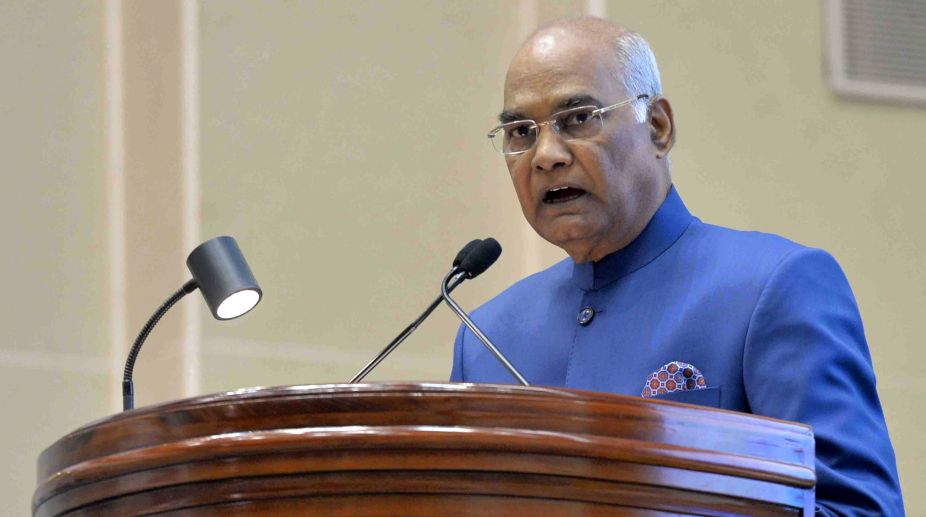President Ram Nath Kovind on Thursday stressed the need to understand different religions and their different traditions, as they all are one and the same, leading to the path of truth.
Inaugurating the 4th International Dharma-Dhamma Conference on “State and Social Order in Dharma-Dhamma Traditions” in Rajgir of Nalanda district in Bihar, the President said the meet reflected India’s friendship with ASEAN countries, “which share our rich spiritual heritage and age-old knowledge of the Indian sub-continent and south-eastern Asian countries”.
Advertisement
“This conference is being held at a time when we are celebrating 25 years of ASEAN-India dialogue partnership. This year on the Republic Day, representatives of all the 10 countries of ASEAN will be our honourable guests.”
He said the Nalanda University was itself an example of result of close cooperation between India and ASEANA countries.
Nalanda University Vice Chancellor Sunaina Singh said the varsity, in collaboration with the Centre for Study of Religion and Society, India Foundation, Ministry of External Affairs and the Vietnam Buddhist University, was organising the event.
The three-day conference started on Thursday (January 11) at Rajgir International Convention Centre, Rajgir — about 100km from here.
The event was part of a series of commemorative events to celebrate the Silver Jubilee year of ASEAN-India Dialogue Partnership, with active support from the Ministry of External Affairs, Singh added.
Besides President Kovind, Bihar Governor Satya Pal Malik, Chief Minister Nitish Kumar, Sri Lankan Minister of Foreign Affairs and Development Assignments Tilak Marapana and Kingdom of Thailand’s Minister for Culture Vira Rojpojchanarat, among others, are attending the conference.
The overall theme of the Conference — State and Social Order in Dharma-Dhamma Tradition — aims to facilitate cross-pollination of ideas and foster harmony at the global level and also seeks to explore the shared values of the dharmic traditions that could provide the guiding light to the world and a sense of inter-connectedness.
As one of the defining principles of the human civilization, Dharma-Dhamma provided the structure upon which a broad array of human existence and cosmic life was built across the globe.
The notion of Dharma-Dhamma, in its manifold manifestations, including truth and non-violence, peace and harmony, humaneness and spiritual linkages and universal fraternity and peaceful co-existence, served as a moral compass that guided people in the Indian sub-continent through ages and continues to shape and sustain the Indian cultural ethos.











